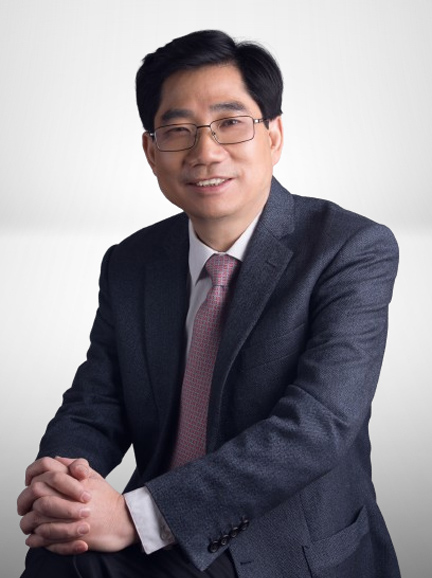Professor Xu Anlong
Professor XU Anlong (7th COT Award Winner)


Affiliation at the time of the Award:
- President, Beijing University of Chinese Medicine
- The State Natural Science Award (Second Prize, Place No. 1)
- National Science Fund for Distinguished Young Scholars
- Chief scientist, National Basic Research Program of China (973 Program)
- The First Batch of Leading Talents of Scientific and Technological Innovation in the National “Ten-thousand Talents Program”
- The 14th C. C. Tan Life Science Award
- Founder and Editor-in-Chief, Journal of Traditional Chinese Medical Sciences
- Honorary Doctorate of Letters, Western Sydney University
Biography
Professor Xu Anlong obtained his Ph.D. from University of Illinois at Urbana-Champaign (UIUC) in 1992. He then conducted postdoctoral research at the University of California, San Diego in 1992-1994 and joined a San Diego-based Alliance Pharmaceutical Corporation in 1994-1996. After 10 years of study and research work in the US, he joined the Department of Biochemistry of College of Life Sciences, Sun Yat-sen (Zhongshan) University (SYSU), his alma mater, in 1996. He served as the Dean of the College of Life Sciences from 2000 to 2008 and was appointed Vice-President for research and development of SYSU in 2008. Currently, Professor Xu focuses on molecular biology and immunology and has been serving as the President of Beijing University of Chinese Medicine (BUCM) since 2013. He has also held positions as the Director of the State Key Laboratory of Biocontrol of Harmful Organisms and Resource Utilization, as well as the National Engineering Research Center of Marine Biotechnology in the South China Sea.
Professor Xu’s research focuses on functional genomics, aiming to understanding the origin and evolution of vertebrate immune system and discovering new drugs through basic research. He has presided over 17 national-level scientific research projects, including the National Outstanding Youth Science Fund, 973 Program, 863 Program, National Natural Science Foundation of China Key Project, and National Key Research and Development Program of China. He has published over 200 papers in peer-reviewed international journals as the corresponding author, such as Nature, Cell, Nat Cell Biol, J Hepatol, Gut, Cell Res, Signal Transduct Target Ther, Natl Sci Rev, Kidney Intl, PNAS, PLoS Biology, EMBO Rep, J Biol Chem, J Immunol, as well as has served as the editor-in-chief of two publications and has obtained over 60 invention patents in both China and the US. His contributions have been recognised with several scientific awards, including three first prizes of Guangdong Science and Technology Award/ Natural Science Award (2005, 2008 and 2018), the second prize of the National Natural Science Award (2012), the first prize of Science and Technology Award of Chinese Pharmaceutical Association (2017), and the first prize of Beijing Higher Education Teaching Achievement Award (2021).
Professor Xu has received numerous prestigious awards and recognitions throughout his career, including the National Outstanding Youth Science Fund in 1997, the government special allowance issued by the State Council in 2000, the 6th China Youth Science and Technology Innovation Award in 2003, selected as a national-level candidate for the New Century Millions of Talents Project in 2004, recognised as one of the Ten major scientific and technological progress of China's colleges and Universities in 2010, and selected as a Innovation teams in key areas of the Innovation Talent Promotion Plan by the Ministry of Science and Technology in 2013. In 2014, he was selected as one of the first batch of technological innovation leaders in the National High-Level Personnel of Special Support Program. In 2016, he was selected as one of The Top Ten Medical News Figures in China and was awarded the Ten Major Advances in the Field of Life Sciences in China. In 2021, he won the 14th C. C. Tan Life Science Award and was selected for the Qi-Huang Scholar Program (Integrated Traditional Chinese and Western Medicine) by the National Administration of Traditional Chinese Medicine.